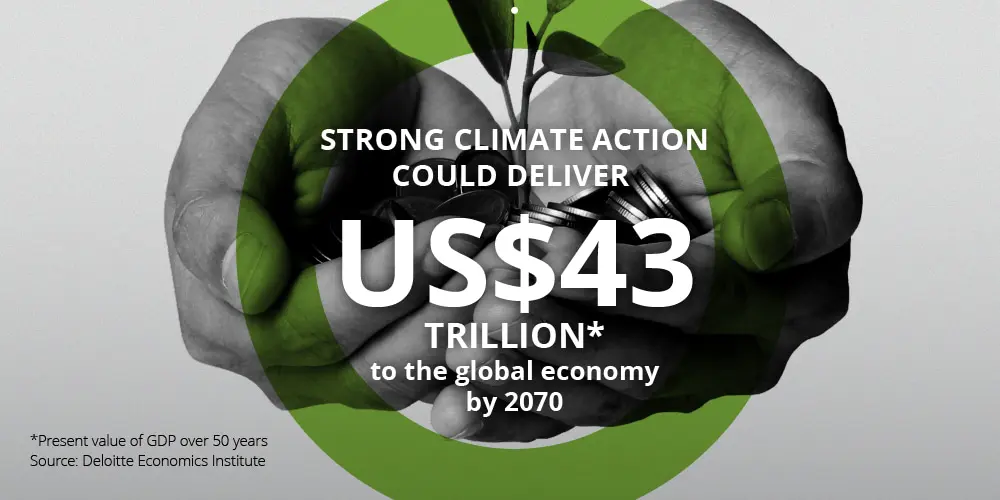Climate disclosure company regulation is going to be transformed to tackle flaws in current sustainability reporting practices.
This transformation will be the creation of the ISSB (International Sustainability Standards Board) by the IFRS Foundation to act as the global baseline of high-quality sustainability disclosure standards with a "building blocks" approach and strengthen the practice of non-financial reporting to ensure companies provide investors with a set of disclosures on sustainability risks and opportunities.
Despite recognition from leading regulative organisations, ISSB standards withhold several drawbacks that need to be reconsidered before being founded as a global baseline of reporting standards to meet the needs of investors and that local jurisdictions can build on. But as ISSB reporting advocates that companies need to report on all sustainability topics under a consistent global framework, it is vital for company executives and audit committee members to start planning for these impending sustainability reporting changes.
The Shift
For sustainability regulation in the UK, future ISSB sustainability standards are expected to be incorporated with existing mandatory sustainability frameworks and reporting including TCFD (Taskforce for Climate-Related Financial Disclosures) and SASB (Sustainability Accounting Standards Board) standards to ensure necessary comparability across companies and countries. Growing support for the Foundation to take a key role in sustainability reporting is emphasised by firms affirming support for ISSB regulation stating they 'support disclosure frameworks aligned with the TCFD framework and sector-specific metrics, such as those that will be taken forward by the ISSB.' Poised to work in close cooperation with jurisdictions via a dedicated inclusive working group, international collaboration is essential for ISSB to create a disclosing baseline system that can be implemented on a global scale.
Although companies are currently disclosing information to TCFD disclosures, Sacha Sadan, the FCA's director of ESG has said that "we also encourage companies to look ahead to the future implementation of reporting standards in development by the International Sustainability Standards Board (ISSB)." For companies, ISSB regulation is necessary when facing pressure from investors and regulatory requirements themselves. Investors expect the ISSB to bring the same focus as the IASB Board has done for financial reporting. Furthermore, investors that have supported the adoption of TCFD and SASB standards in the past may expect companies to adopt new standards quickly. In the UK jurisdiction, ISSB standards will be expected to act as a baseline with other jurisdictions likely to adopt the standards in their entirety. To support this shift, the ISSB has published a comparison document to highlight how the proposals are consistent with the FSB Task Force on TCFDs. The new ISSB standards will be applied prospectively with consideration of recent public feedback to its agenda priorities for the global baseline to be fully in place by the end of 2022.
ISSB Drawbacks
The IFR's 'building blocks' approach suggests that sustainability issues can be neatly dissociated from one another, but sustainability issues are deeply intertwined and need to be considered with a holistic approach. UNEP believes a number of ISSB standards need to be reconsidered to become a global baseline that includes an emphasis on deciding what to disclose to the reporting entity based on what it considers material of its enterprise value. This could lead to selective disclosure, especially if two companies in the same industry report on different sustainability topics if their materiality assessment differs.
Furthermore, the ISSB standards should require as a minimum that all companies report on a globally harmonised set of core sector-agnostic indicators as well as geographical contextualised disclosures, adoption of long-term horizons, and clear guidance on what constitutes appropriate sustainability analysis and management. Supported by the FCA, they have made it clear that the ISSB needs to take further steps to recognise "the different levels of familiarity with and maturity" in climate and sustainability reporting across corporates in different jurisdictions.

Preparing for the Future
As sustainability reporting is heavily tied to the success of organisations, especially when facing pressure from investors and other stakeholders for more reliable sustainability information, it is vital for both directors and employees to act now and plan ahead to reap benefits from acting early. First of all, ISSB reporting would be connected to financial statements so companies would need processes and controls in place to provide sufficient and high-quality sustainability information at the same time as their financial information.
To reach ISSB standards, it is important for organisations to internally educate themselves on existing and future sustainability-related risks as well as provide training and educational courses to employees corroborating with companies needing to revamp or build infrastructure, controls and procedures to support the initiatives. Moreover, companies should engage with current processes to understand how information is defined, captured and reported, allowing the ability to create efficiencies and move certain aspects.
How Climate X can help
At Climate X, we’re fully prepared for future sustainability disclosure changes, especially when supporting companies prepare for the shift to regulatory ISSB standards.
With our climate risk reporting platform, Spectra, we can support businesses understand and meet new regulation changes. To understand more about how we aim to prepare companies for future regulations, reach out to our team or try out Spectra as part of our free a trial, to understand how we can help you tackle climate disclosure regulations.





